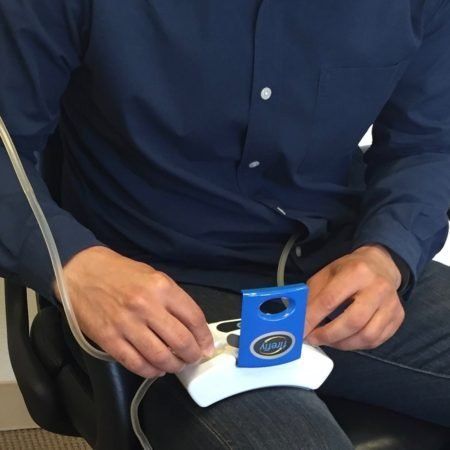Patients

Peritoneal Dialysis

What is Peritoneal Dialysis?
Peritoneal dialysis (PD) is a practical and widespread treatment option for patients with kidney disease. The process involves a catheter that fills the abdomen with a cleansing liquid, dialysate, allowing waste products from the patient’s blood to be added into the solution, and then leave the body during drainage. Patients on PD enjoy multiple advantages compared to patients on other methods, including the ability to lead a flexible and independent lifestyle, the convenience of doing treatment from the comfort of one’s own home, and the ability to provide the kidneys continuous cleansing therapy. Peritoneal dialysis, together with the Firefly TM, will be studied as a way to potentially transform the PD landscape by enabling a broader group of patients to enjoy the substantially improved quality of life that PD provides.
What is Peritonitis?
A high number of PD patients experience severe peritonitis (infection) due to a lack of compliance in rigorous disinfection throughout the treatment process. Peritonitis is the bacterial or fungal infection of the peritoneum, resulting in the inflammation, or irritation, of a thin layer of tissue that lines the inside of the abdomen. Peritonitis requires immediate medical attention to fight the infection prior to pervading throughout the body. The Firefly TM peritoneal dialysis disinfection system under development may provide high-level disinfection of peritoneal dialysis catheter connections that does not rely on patient compliance. If it is possible to reduce the incidence of peritonitis, then Firefly TM might provide PD patients with a safe, easy-to-use treatment method that requires minimal training.

Symptoms of peritonitis include: severe abdominal pain, tenderness, distention, swelling, and guarding, chills, nausea and vomiting, fluid in the abdomen, a decrease in appetite, fever, low urine output, high thirst, difficulty in bowel movements, and fatigue. Moving the peritoneum, as in coughing, exacerbates such symptoms.
If left untreated, peritonitis can rapidly pervade into the bloodstream, resulting in sepsis, or to other organs, resulting in multiple organ failure and death.

The diagnosis of peritonitis is based on signs and symptoms, particularly the presence of cloudy dialysis fluid. In the event of suspected peritonitis, surgery will need to be performed. Your doctor may recommend having the following tests to confirm the diagnosis of peritonitis: peritoneal fluid analysis for examining the white blood cell count, blood culture to determine presence of bacteria in the blood, or X-ray, CT, or ultrasound for checking for perforations in the gastrointestinal tract.

Hospitalization for peritonitis may need to be required. Treatment may include antibiotics for fighting the infection and preventing the spread of infection to other areas of the body, surgical treatment to remove the infected tissue and for prevention of further infection, intravenous (IV) fluids, supplemental oxygen, or a blood transfusion.
Firefly TM is under development to reduce a patient’s risk of peritonitis while reducing the time for disinfection protocols, which may ensure the patient is be kept safer, better disinfected, and potentially have an active lifestyle while on peritoneal dialysis by reducing treatment time. Please see more information on preventing peritonitis with the Firefly TM here.

The Firefly TM peritoneal dialysis disinfection system provides high-level disinfection of peritoneal dialysis catheter connections, thereby reducing the incidence of peritonitis for the dialysis patient.
It is hoped that with the Firefly TM disinfection system under development, patients may be reassured by the minimal training and an easy-to-learn protocol. It will be studied in future clinical studies whether patients may decrease the incidence of peritonitis while enjoying the many benefits of choosing PD treatment.
To learn more about the Firefly TM technology, please click here.
If you are a patient, physician, or provider and would like more information on the Firefly TM , please contact us.